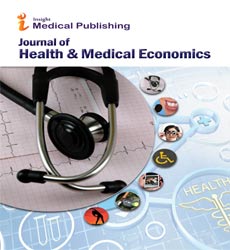Abstract
Cost-Effectiveness Analysis of Regorafenib for Third-line Metastatic Colorectal Cancer Compared to Cetuximab Plus Irinotecan in China
Objective: While the clinical effect of regorafenib for third-line metastatic colorectal cancer has been established, the economic effect of adopting the new therapy (regorafenib) is still unclear. The present study aimed to examine the costeffectiveness of regorafenib compared to cetuximab plus irinotecan in the Chinese setting. Methods: A Markov model was constructed to conduct the cost-effectiveness analysis from a third-party payer perspective. The cost of oncology drug, utilization of both in-hospital and outpatient care facilities, administration of medications via parenteral routes, use of supportive care medications, clinical monitoring with lab tests and diagnostic imaging, and care for treatment-emergent severe adverse events were considered. Clinical effectiveness data were obtained from the clinical trials. One-way sensitivity and probability sensitivity analyses were conducted to examine the robustness of the base-case findings. Results: The model projected patients on regorafenib had an incremental gain of 0.03 QALYs relative to cetuximab plus irinotecan (0.68 Vs 0.65) at a cost-saving of ¥195,756 (¥221,860Vs¥417,616). For the subpopulation who received no previous targeted treatment, compared to cetuximab plus irinotecan, regorafenib was expected to result in additional gains of 0.15 QALYs at cost-saving of ¥95,987. Probability sensitivity analyses show that at the threshold of 3 times of GDP per capita of China (¥53,980*3), regorafenib has the probability of 82% to be costeffective against with cetuximab plus irinotecan. Conclusions: Regorafenib monotherapy is cost-saving and more effective compared with cetuximab plus irinotecan regimen in treatment patients with mCRC at third-line treatment setting in China.
Author(s):
Shuiqing Zhu, Jin Liu, Wentao Sun, Libo Tao,Dunming Xiao and Jianwei Xuan
Abstract | Full-Text | PDF
Share this

Google scholar citation report
Citations : 210
Journal of Health & Medical Economics received 210 citations as per google scholar report
Abstracted/Indexed in
- Google Scholar
- China National Knowledge Infrastructure (CNKI)
- WorldCat
- Geneva Foundation for Medical Education and Research
Open Access Journals
- Aquaculture & Veterinary Science
- Chemistry & Chemical Sciences
- Clinical Sciences
- Engineering
- General Science
- Genetics & Molecular Biology
- Health Care & Nursing
- Immunology & Microbiology
- Materials Science
- Mathematics & Physics
- Medical Sciences
- Neurology & Psychiatry
- Oncology & Cancer Science
- Pharmaceutical Sciences

